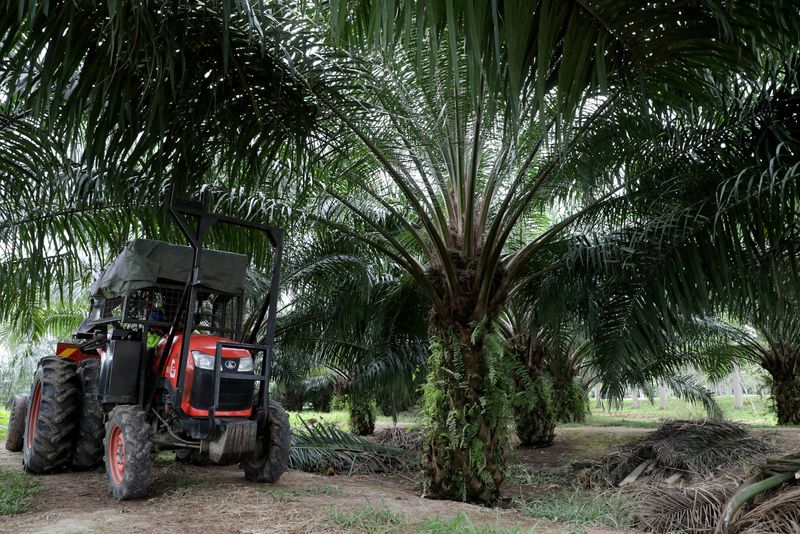KUALA LUMPUR (Reuters) – Tight edible oil stockpiles and blocked shipments from the Black Sea area are expected to keep prices near record highs for the coming months, but sticker shock is expected to curb global consumption in the latter half of 2022, industry analysts said.
Malaysian palm oil futures raced to an all-time high of 7,268 ringgit ($1,736.26) per tonne on Wednesday, while soybean oil jumped to its highest in 14 years.
Palm oil has soared more than 50% this year and soybean oil has climbed almost 40%.
A potent mix of dry weather in key soybean supplier South America, labour shortages in the world’s second biggest palm oil producer Malaysia, and Russia’s invasion of top sunflower oil exporter Ukraine have combined to slash edible oil supplies worldwide.
The price surge has already slowed purchases in some key markets.
Graphic: Key global veg & mineral oil prices in US dollars/tonne: https://fingfx.thomsonreuters.com/gfx/ce/movandodnpa/GlobalOilsMar2022.png
“Demand has been slow as consumers only buy hand-to-mouth due to extremely high prices and negative parity at the destination,” said Rasheed JanMohammed, chief executive at Westbury Group, referring to demand in Pakistan.
Edible imports by India, the world’s top edible oil buyer, are likely to drop to around 13 million tonnes in 2021/22 from 13.49 million tonnes a year ago, Dorab Mistry, a director of Indian consumer goods company Godrej International, told an industry conference in Kuala Lumpur.
“Very clearly, demand is reacting…consumption is declining,” said Thomas Mielke, head of Hamburg-based analyst firm Oil World. “In many countries like in Africa, India and Pakistan, consumers cannot pay these high prices.”
China lowered its edible oil import forecast this month for the crop year 2021/22 amid soaring prices. Imports are seen at 8.53 million tonnes, down from February’s forecast of 9.3 million tonnes, the Ministry of Agriculture and Rural Affairs said in its crop report released on Wednesday.
MORE PAIN TO COME
But before there is a broader drop in demand, prices are expected to rise further.
Palm oil prices could hit a record 8,100 ringgit ($1,9352) a tonne in coming months following a plunge in global edible oil stocks and a decline in export surpluses, including from the war in Ukraine, analyst James Fry said.
He expected locally delivered crude palm oil prices in Malaysia to range between 6,600-8,100 ringgit a tonne until July, easing to 6,200-7,000 ringgit in the third and fourth quarters when supply builds and demand falls.
In Indonesia and Malaysia, total palm oil output in 2022 is likely to rise by just about three million tonnes from last year, analysts said – far less than needed to offset supply disruptions in South America and the Black Sea.
For soybeans, production in South America is likely to decline by 21 million tonnes tonne in 2022 from a year ago, Mielke said.
It is not just buyers who are scrambling for supplies. Top exporters are also getting insecure as they face record domestic prices.
Indonesia will expand its mandatory domestic sales of palm oil to 30% of planned exports by companies from 20% currently starting from Thursday as part of efforts by authorities to contain cooking oil prices, Trade Minister Muhammad Lutfi said.
The latest policy changes could remove around 100,000 tonnes of palm oil per month from world markets, according to Anilkumar Bagani, research head of Mumbai-based vegetable oils broker Sunvin Group.
Meanwhile, Malaysia expects its first a new batch of foreign workers to arrive in May and June for its palm plantations, the plantation industries minister said on Tuesday – months later than an original plan to add more labour early this year.
($1 = 4.1860 ringgit)
(Additional reporting by Fransiska Nangoy in JAKARTA; Writing by Naveen Thukral; Editing by Kim Coghill)



















